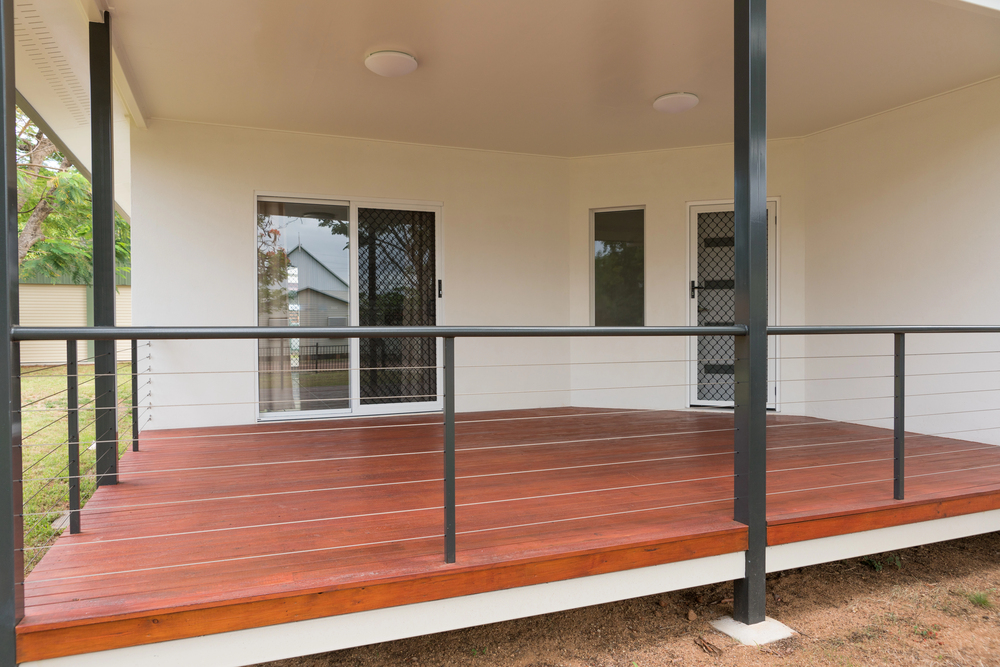Timber Types That Work Best for Wet Winters
Here’s a guide to the timber types that are up for the job during wet winters—and why calling in a seasoned tradie is your best bet.

When winter rolls in across Australia, some parts of the country—especially the southern states and coastal areas—cop a fair bit of rain. Whether you're in Melbourne bracing for soggy months or up in the Hills District with unexpected drizzles, moisture and timber don’t always play nice. That’s why it pays to choose the right kind of wood, especially for outdoor decking, pergolas, cladding, or even garden furniture.
Here’s a guide to the timber types that are up for the job during wet winters—and why calling in a seasoned tradie could save you time, stress, and a lot of money down the track.
Why Timber Choice Matters in Winter
Water is timber’s worst enemy if not properly accounted for. Constant exposure to moisture can cause swelling, rot, warping, and fungal growth. But if you choose the right kind of timber—and treat it properly—you’re setting yourself up for a structure that’ll go the distance, even through the wettest season.
Let’s dive into the best timber options that can handle Aussie winters like a champ.
1. Treated Pine – Budget-Friendly & Versatile
Treated pine is one of the most commonly used timbers across Australia. It's affordable, readily available, and easy to work with. When pressure-treated, it becomes resistant to rot, insects, and fungal decay. Just make sure it’s H3-rated or above for outdoor use, especially in wetter areas.
Ideal for: decking, fencing, pergolas, outdoor furniture
Keep in mind: It needs proper sealing and maintenance to prevent moisture seepage.
2. Merbau – Dense and Naturally Oily
Merbau is a hardwood that comes from South-East Asia and is prized for its rich colour and durability. Its natural oils make it highly resistant to moisture and rot, which is why it's a go-to choice for decks that need to stand up to wet winters.
Ideal for: outdoor decks, stairs, handrails
Keep in mind: It can leach tannins when wet, so proper sealing is important—especially if it's near light-coloured walls or paving.
3. Spotted Gum – Aussie Native That’s Built Tough
Spotted Gum is a native Australian hardwood that’s not only beautiful but incredibly strong and durable. It has a natural resistance to termites, rot, and moisture. It’s a top pick for coastal homes or bushfire-prone areas too, making it a solid all-rounder.
Ideal for: structural framing, decks, flooring
Keep in mind: It can be a bit pricier, but you get what you pay for.
4. Ironbark – As Solid as It Sounds
If you need something that can cop a beating from both moisture and wear, Ironbark is your mate. It’s one of the densest Australian hardwoods, meaning it’s naturally resistant to decay, termites, and wet conditions.
Ideal for: outdoor decking, posts, high-traffic areas
Keep in mind: It’s heavy and hard to work with, so definitely a job for the pros.
5. Blackbutt – A Sleek and Durable Option
Another Aussie native, Blackbutt has a lovely pale tone that suits modern designs. It has natural fire resistance and decent resistance to moisture when sealed properly. It's also often used in coastal or rainy areas due to its stability.
Ideal for: cladding, decking, feature walls
Keep in mind: Needs sealing to prevent weathering, but ages beautifully with care.
Why It Pays to Hire a Tradie

Here’s the thing—choosing the right timber is just one part of the job. How it's installed, sealed, spaced, and maintained makes a massive difference to how well it performs in winter. A licensed chippy or carpenter will know the ins and outs of moisture management, proper spacing for expansion, and sealing techniques.
They’ll also help you:
-
Avoid costly mistakes (like using indoor timber for outdoor work—yes, people still do it!)
-
Source the right grade and treatment level for your climate
-
Save time and get the job done to code
And if you're not sure where to start, that's exactly where ServiceSeeking.com.au steps in. Our platform connects you with experienced tradies across Australia—just post your job, compare quotes, and pick someone who fits your timeline and budget. Too easy.
A Few Extra Tips for Winter Timber Jobs
-
Seal it properly: No matter how moisture-resistant your timber is, it needs to be sealed to prevent water ingress.
-
Good drainage is key: Ensure decks and outdoor structures are sloped or spaced to let water run off.
-
Regular maintenance pays off: A quick oil or reseal every year can add years to your timber’s life.
Final Word
Wet winters can be rough on timber, but with the right materials and an experienced hand, your project can hold up beautifully for years to come. Whether you're planning a new deck, replacing some outdoor stairs, or sprucing up the façade, the smartest move is getting a tradie who knows their wood.
So don’t risk a dodgy DIY—hire a professional tradie through ServiceSeeking.com.au and let the experts take care of it while you stay dry indoors with a cuppa.
Need a timber expert near you? Post your job today on ServiceSeeking.com.au and get quotes from local pros within hours.
